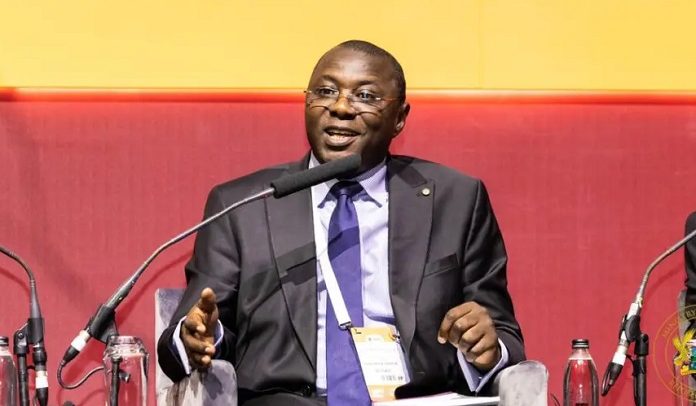Dr Mohammed Amin Adam
A Daily Guide Report with additional facts from Reuters Ghana has reached a restructuring agreement in principle with its bondholders for $13 billion worth of international debt.
According to Reuters, three sources confirmed the agreement on the heels of a deal finalised with official creditors earlier this month.
The deal will see bondholders take a haircut on principal of up to 37% and maturity of the bonds lengthened, two of the sources said.
Ghana defaulted on most of its $30 billion in external debt in 2022, under the strain of the COVID-19 pandemic, the war in Ukraine and higher global interest rates and surging debt.
Like Zambia, Ghana also signed up for debt treatment under the G20 Common Framework, a process designed to facilitate quick debt overhauls and to bring the newest large bilateral lender, China, into the process.
Zambia’s bondholders signed off on its restructuring earlier this month, after the southern African copper producer became the first African country to default during the pandemic.
For Ghana, “things are pretty close. We can expect an announcement by next week,” one source said, asking not to be named because they were not authorised to speak to media.
The other two sources said the government could announce the agreement as soon as Friday.
Ghana started formal talks with two groups of bondholders in mid-March – a group of Western asset managers and hedge funds and another one including regional African banks.
The negotiations, however, stalled in April after the proposed deal failed to meet the International Monetary Fund’s (IMF) debt sustainability analysis requirements, forcing both sides to regroup to find a suitable solution.
The three sources said the deal had since fit into a revised IMF debt framework on Ghana shared with bondholders earlier, resulting in the agreement in principle.
Official Creditor C’ttee MoU
The government earlier this month reached an agreement through a Memorandum of Understanding (MoU) with its Official Creditor Committee (OCC) regarding the debt treatment agreed upon in January this year.
Ghana’s OCC is co-chaired by China and France.
According to the Ministry of Finance, which made this known, the formalisation of the OCC agreement is expected to pave the way for the approval by the IMF Executive Board of the second review of the Fund-supported Post COVID-19 Programme for Economic Growth (PC-PEG), allowing the next tranche of IMF financing of US$360 million to be disbursed.
The ministry said the IMF Board’s approval should also trigger more financial assistance from Ghana’s development partners, particularly the World Bank.
The agreement will also bolster the current and ongoing discussions with private creditors, with whom Ghana remains committed to finding a comparable agreement as early as possible.
Minister for Finance, Dr. Mohammed Amin Adam, commenting on this, said “The Ministry of Finance, on behalf of the Republic of Ghana, extends our gratitude to all members of the OCC, particularly the committee’s co-chairs, China and France, for their unwavering commitment to assisting our country in resolving its debt issues. This landmark agreement marks an extraordinary milestone in Ghana’s debt restructuring journey and will further strengthen our ambitious reform agenda with the strong support of our development partners.”
He continued that each official creditor would now follow their internal procedures to sign the MoU and once signed, the agreed terms would be implemented through bilateral agreements with each OCC member.
“We call upon our official creditors to fast-track their internal processes towards the signing of the bilateral agreements,” he said.
The Finance Minister said Ghana continues to engage in good faith with all commercial external creditors, and is striving to finalise restructuring agreements that respect the country’s need for debt relief and the comparability of treatment principle, reiterating its firm commitment to remain in arrears with its external commercial creditors until agreements compatible with the comparability of treatment principle are reached.


